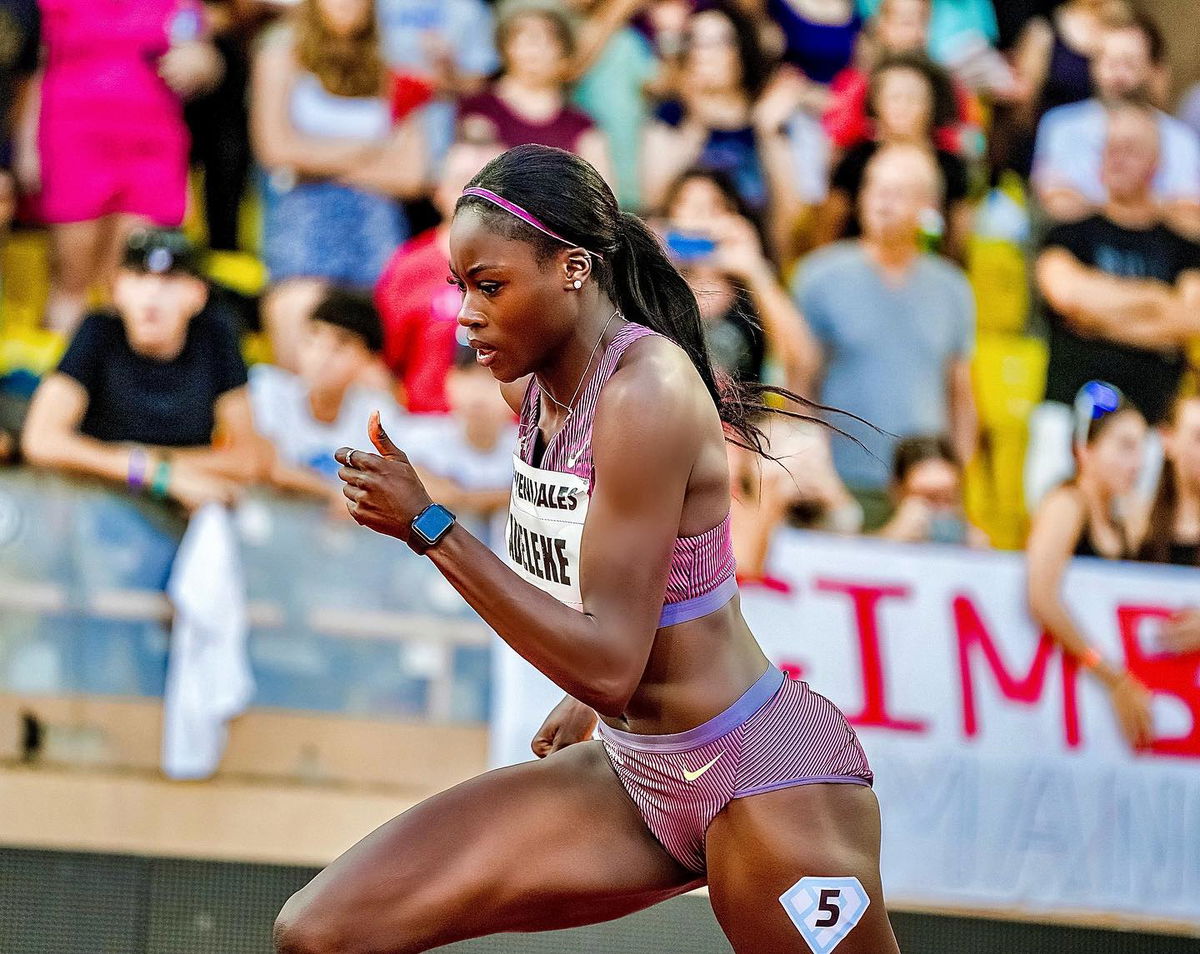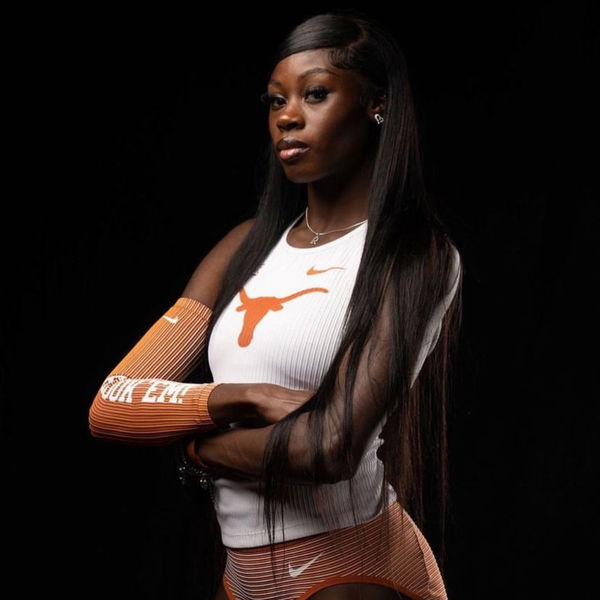
Imago
Credits: Instagram

Imago
Credits: Instagram
A celebrated Irish sprinter will not line up for her country in Tokyo next month. After a season of withdrawals, missed meetings, and elusive explanations, her name disappeared from the World Championships relay roster. The absence left questions hanging in the air, especially given her past importance to Ireland’s relay efforts.
Watch What’s Trending Now!
Rhasidat Adeleke confirmed the decision herself, writing that “lingering injuries and continuous setbacks” had forced her to step away. Her coach reiterated that she was “honestly injured” and not in a position to race at a world-class standard. The Dublin native has dealt with a fractured year: A no-show at the National Championships, a scratched entry in Monaco, and now a missed global stage.
ADVERTISEMENT
The decision quickly drew the attention of Sonia O’Sullivan, who used her Irish Times column to voice reservations about how Adeleke has managed both her form and her communication. O’Sullivan noted that phrases such as “setbacks” left the public none the wiser about what was truly going on. More pointedly, she asked why the 22-year-old did not consider restricting her workload to the 4x400m relay once her individual 400m ambitions faltered.
“My first concern for Rhasidat Adeleke right now is that she’s not being entirely open or honest. Not just with herself, but with some of the people around her,” O’Sullivan wrote. She added, “Maybe another option for Tokyo would have been to just focus on the relay when she realised her individual 400m aspirations weren’t working out.” Her remarks did not pass quietly.
ADVERTISEMENT
Track follower Owen M posted a sharp rebuttal on X, arguing that O’Sullivan’s stance overlooked the risks of returning to competition without full recovery. He described the comments as “very poor” and emphasized Adeleke’s recent account of her difficulties. “Rhasidat was very open in her recent post, where she stated that she’s faced lingering injuries and continuous setbacks throughout the year, which have made it increasingly difficult for her to perform at the level she expects from herself,” he wrote. In his view, to demand relay duty under such conditions would be reckless. And he didn’t stop there…
ADVERTISEMENT
“Why would she potentially risk any further damage by running the relay in Tokyo? Sometimes it’s best to take a step back both mentally and physically – something we sadly don’t see enough of in this sport due to the constant pressures of pleasing sponsors, etc.”
Tbh those are pretty tame comments by Sonia’s standards — you should hear her commentary on RTE she’s pretty brutal but to her credit, she is hard on all the athletes equally
— Brian Longobardi (@BrianLongobardi) August 22, 2025
Relay events are valuable opportunities, yet they remain secondary to the individual workload of elite sprinters. Adeleke has already managed her relay schedule with caution, opting out of the mixed relay at the Paris Olympics. Even when she did contribute, such as at the World Relays in May, she did so selectively. Critics like O’Sullivan see this as a missed chance to alleviate pressure, while supporters argue that a young athlete battling repeated setbacks must prioritize long-term health.
ADVERTISEMENT
And to be fair, in her 10 races so far this season (3 relays and 7 individuals), she didn’t really look in her best form.
So, Adeleke’s withdrawal marks a subdued end to her 2025 campaign, but the debate around her choices will linger beyond the summer. Whether O’Sullivan’s challenge or Owen M’s defense carries more weight, it is clear that every decision at this level carries consequences not only for the athlete but also for the broader perception of commitment to team and country.
ADVERTISEMENT
Rhasidat Adeleke’s decision to withdraw from the World Championships has split opinion, with Sonia O’Sullivan questioning her openness and fans defending the sprinter’s right to prioritize recovery.
ADVERTISEMENT
Debate ignites as Rhasidat Adeleke’s withdrawal sparks clash over injury, honesty, and duty
O’Sullivan’s words were judged against her usual style, with one noting, “Tbh those are pretty tame comments by Sonia’s standards — you should hear her commentary on RTE she’s pretty brutal but to her credit, she is hard on all the athletes equally.” Her critique of Adeleke was consistent with her broader approach, where she rarely softens her assessments of Irish athletes, regardless of status.
Another reaction stressed her authority. “Sonia just telling it like it is. Probably without any malice at all. And it seems she has some insight we don’t. Given she’s a world champion and former world record holder- I’d suggest we listen.” The reasoning here ties her criticism to lived experience, suggesting her perspective carries more legitimacy because she has faced similar pressures at the top level.
But her specific relay suggestion drew pushback. One track enthusiast argued, “The point of not running because of injury/recovery is to not run idk how relay would be any different because that’s still an event where she has to run 400m just to risk further injury if she is even healthy enough to start to beging with. Just a strange take from O’Sullivan.” This directly challenges the logic, stressing that relay duties are physically identical to the individual event and equally risky if Adeleke is compromised.
ADVERTISEMENT

Imago
Credits: Instagram
Athlete agency was another central theme. One comment declared, “An athlete knows their own body much better than a pundit does. Sonia really should know better.” In context, this reflects the tension between outside commentary and personal health decisions, underscoring that Adeleke’s own judgment about her readiness carries more weight than public debate.
The disappointment for fans wasn’t only about the argument but the absence itself. As one wrote, “I’m saddened by this.” Such a take captured the emotional toll on supporters, who expected Adeleke to anchor Ireland’s relay hopes. The reaction highlights the sense of loss for fans, separate from the controversy about whether her withdrawal was justified.
ADVERTISEMENT
Finally, some zoomed out to see a bigger pattern. A fan observed, “Idk, I kinda want to know a bit more about her decision to end the season early just to understand what is going on. With Dina returning home, Julien easing up w injury before worlds & now rhasidat out, you’d wonder what is going on in that training group.” Her situation isn’t isolated but part of a concerning trend within her training environment, raising broader questions beyond her individual choice.
What are your thoughts regarding this whole incident?
ADVERTISEMENT
ADVERTISEMENT
ADVERTISEMENT